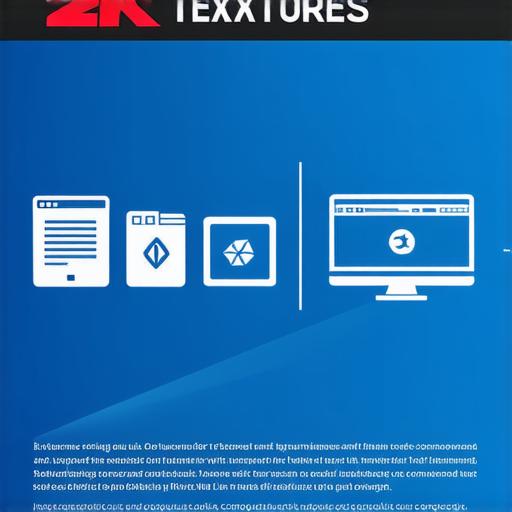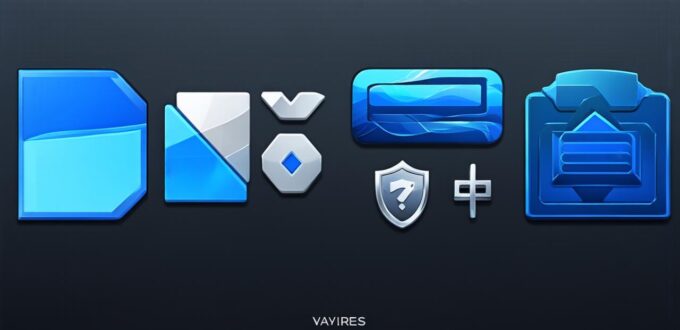
Operating Systems
An operating system (OS) is a type of software that manages the hardware and software resources of a computer. The OS provides an environment for applications to run, manages memory allocation, handles user input and output, and provides security features such as firewalls and antivirus software. Examples of popular operating systems include Windows, macOS, Linux, Android, and iOS.
Operating systems are responsible for managing the hardware resources of a computer, including processors, memory, storage, and peripherals. They provide an interface for users to interact with the computer’s hardware and manage its resources. Operating systems also provide a platform for applications to run on. For example, a Windows operating system provides a platform for Microsoft Office, Adobe Creative Suite, and other productivity software to run.
Productivity Software
Productivity software is a type of software that helps users perform tasks related to work or personal projects. Examples of productivity software include word processors (Microsoft Word), spreadsheets (Microsoft Excel), presentations (Microsoft PowerPoint), and project management tools (Trello, Asana). Productivity software is designed to make users’ lives easier by automating routine tasks, providing templates, and offering collaboration features.
Productivity software is used to perform a variety of tasks related to work or personal projects. These include creating documents, tracking expenses, managing schedules, and collaborating with others. Productivity software is often used in conjunction with other types of software such as operating systems, games, and applications. For example, Microsoft Office is commonly used with Windows operating systems for productivity purposes.
Games
Games
are a type of software that are designed to be entertaining and fun for users.
Games
can range from simple puzzles to complex simulations and virtual reality experiences.
Games
are often played on computers, mobile devices, and gaming consoles such as PlayStation and Xbox.
Games
are an important part of the entertainment industry and have become increasingly popular in recent years. They provide a way for users to relax and unwind while also providing mental stimulation and problem-solving challenges.
Games
can be played alone or with others, and many games offer multiplayer features that allow users to collaborate and compete with each other.
Applications
Applications
are software programs that perform specific tasks or functions. Examples of applications include web browsers (Google Chrome, Mozilla Firefox), email clients (Gmail, Outlook), social media platforms (Facebook, Twitter), and messaging apps (WhatsApp, Telegram).
Applications
can be downloaded from app stores or installed directly on computers and mobile devices.
Applications
are designed to perform specific tasks or functions that are not provided by operating systems or productivity software. They are often used in conjunction with other types of software such as games and productivity software. For example, a web browser application can be used in conjunction with productivity software to access online documents and collaborate with others.
Case Studies: Microsoft Office and Windows
Microsoft Office is a suite of productivity software that includes word processors (Microsoft Word), spreadsheets (Microsoft Excel), presentations (Microsoft PowerPoint), and other tools for creating and managing documents. Windows is an operating system developed by Microsoft that is used on computers around the world.
Together, Microsoft Office and Windows have become a powerful productivity tool for businesses and individuals alike. The combination of these two software types provides users with everything they need to create, manage, and collaborate on projects. For example, a sales team can use Word to create proposals, Excel to track expenses, PowerPoint to present their findings, and Outlook to communicate with clients and colleagues.
Case Studies: Minecraft and Microsoft Office
Minecraft is a popular game that allows users to build and explore virtual worlds. The game has become increasingly popular in recent years, especially among children and young adults. Minecraft can be played on computers, mobile devices, and gaming consoles such as PlayStation and Xbox.
Despite its entertainment value, Minecraft also has educational benefits. The game encourages creativity, problem-solving skills, and collaboration with others. In addition, Minecraft can be used to teach programming skills and introduce users to coding concepts. For example, a group of students can use Minecraft to build a simple program that controls the behavior of in-game objects.
FAQs
1. What is an operating system?
An operating system is a type of software that manages the hardware and software resources of a computer.
2. What is productivity software?
Productivity software is a type of software that helps users perform tasks related to work or personal projects.
3. What are games?
Games
are a type of software that are designed to be entertaining and fun for users.
4. What are applications?
Applications
are software programs that perform specific tasks or functions.
